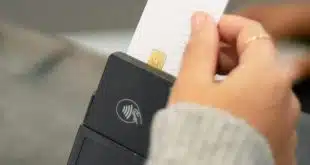Facing a Congressional effort to overturn its recently released prepaid rule, the Consumer Financial Protection Bureau on Wednesday issued a proposal to delay the rule’s effective date by six months.
In the 16-page proposal, the agency suggests moving the effective date from Oct. 1 of this year to April 1, 2018. Comments on the change will be due within 21 days after the proposal’s publication in the Federal Register.
This new gambit comes as the 1,689-page rule, issued last fall under a Democratic administration, has come under attack by both houses of a Republican-controlled Congress and with a new Republican administration that has favored fewer regulations on business. Proponents of quashing the rule are relying on the 20-year-old Congressional Review Act, which allows Congress to nullify a new regulation within 60 days of its publication. The act also streamlines the process by barring a Senate filibuster by supporters of the regulation.

The prepaid rule, which regulates such matters as fee disclosures, error-resolution rights, and consumer access to their accounts, has spurred opposition because of what some see as its inordinate length and sweeping scope. It extends, for example, to digital wallets as well as prepaid cards.
But the CFPB in its proposal this week cites concerns from the prepaid industry that pulling prepaid products from store shelves and replacing them with products that have packaging with compliant disclosures may not be possible by Oct. 1. Program managers fear state and federal law relating to the disclosure language, the agency says in its proposal, even though the agency itself has not required pull and replace by Oct 1.
“For a lot of lawyers, it doesn’t matter what the CFPB says, there are a lot of provisions in contract law that say we do have to pull and replace,” says Jackson. “The consumer is entering a contract that comes with that card. So what we’re seeing is industry lawyers saying we need more time” to pull down previously packaged cards and replace them with packages bearing compliant language.
Still, while the prepaid industry may be strongly in favor of the six-month delay, that doesn’t mean it is lining up behind efforts to strike the CFPB regulation from the books. Prepaid managers, Jackson says, may find the rule unwieldy but favor keeping it in place because it provides cover in cases where customers, program sponsors, and others might shun what they perceive as an unregulated industry.
“The industry is not as keen to see the CFPB regulations go away as conventional wisdom would indicate,” Jackson says. “The industry has a [public relations] concern in all this.”






